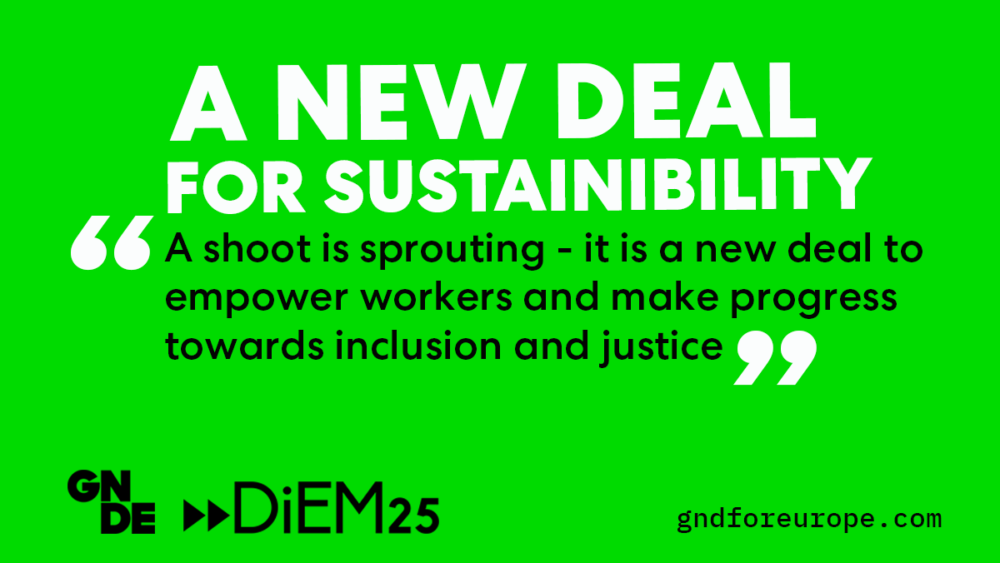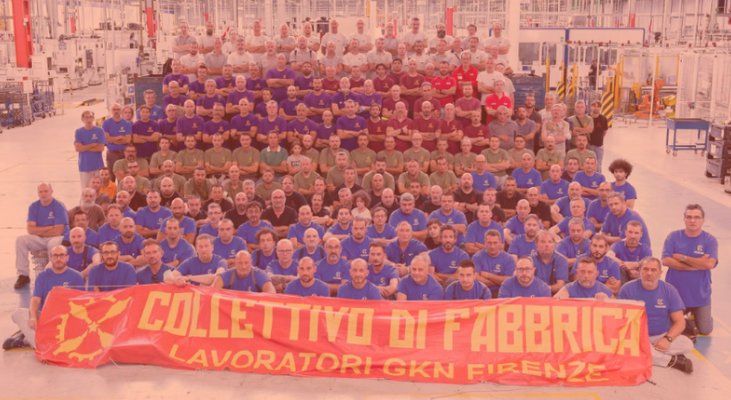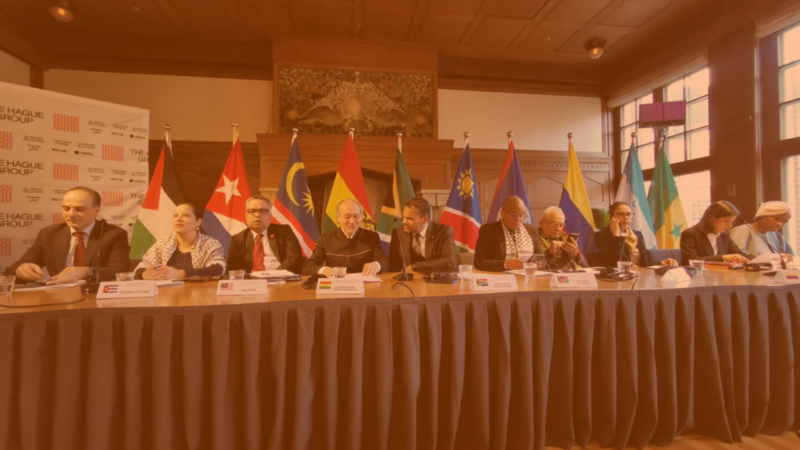It’s time to invest in workers, not bail out the usual suspects.
A spirit has been lingering at the horizon. It was long neglected in favor of expediency. But it has now emerged as a Green New Deal for Europe — the ultimate act of trying to save the European Union from shattering and to stop the machine-like destruction of life in all its forms. The ideology of turning everything into gold has squandered the people’s appetite and has made the world indigestible. It has packaged, shipped and formalised reality out of existence.
The project we envisioned is in the shade of its own towering fumes. Europe lies in the ashes of austerity, with the coronavirus ravishing through the open wound. But a shoot is sprouting — it is a new deal to empower workers and make progress towards inclusion and justice.
In every crisis hides opportunity. In 1919 during the spanish flu, it was cooperatives that held the line. After World War II the cooperative model almost completely disappeared. The Marshall plan, a fund to rebuild Europe, was solely focused on capitalistic enterprises. We are heading towards a crossroads. One road leading to a just and fair Europe, the other to its demise. The Green New Deal is an answer to rebuild a better Europe. It is a deal of inclusion and justice, of care and respect for the people and the environment. It is a beacon of hope.
Democratize the enterprise!
The most important aspect of cooperative businesses is that workers own the majority of the shares in the company. This democratises the company and ensures that the workers themselves make all the decisions on how to run the company, including how profits are invested or distributed. In larger cooperatives, the workers can also elect others to make those decisions.
Through democratic decision-making processes in which every member is involved, “policies can’t be determined by an investor whose only priority is profit.” As is explained in the Green New Deal for Europe report, “Cooperative ownership can increase job security and empower workers.” This enormous shift in power from external shareholders to workers, is what makes a cooperative an amazing instrument to redesign our economy.
In a debate between Richard D. Wolff and Gene Epstein: it is put forward that cooperatives are underrepresented on the free market. People are free to start a cooperative — where are they? This question hangs in the air during the debate, but never gets answered directly: “Well everybody knows that worker cooperatives are not productive and they don’t have the know-how to manage such enterprises.” If we scrutinize this claim, it just says that workers are too dumb and lazy to run their own company.
This biased representation of cooperatives disempowering workers and disincentivizes them from taking part in a cooperative. Multi-billion dollars cooperatives ranging from agriculture, industry to banking are standing their ground in the global market. Yet, business schools are still not teaching the cooperative model. The avenues through which workers can start a cooperative are also constrained due to the basic fact that “they either require the consent of the owners or require the workers to start their own business.” It is also difficult to compete with businesses that offshore their labor to other countries.
As of yet, cooperative law in the EU has not been harmonized and is dispersed across nation states. This makes cross-border mergers difficult. Cooperatives also report that they have difficulty retaining members due to hostile capital takeovers and have experienced legal uncertainty in the application of competition law resulting in high costs.
Cooperatives give workers the opportunity to have a say in how the organizations and companies are structured. This allows them to challenge the logic of companies that put profits before people, and in which board of directors are only incentivized to care for themselves and their shareholders.
Worker cooperatives are a step towards addressing climate breakdown.
The world cooperative monitor reports that cooperatives go to great lengths to reach SDG’s — Sustainable Development Goals — which include environmental sustainability. The WIRE recently launched a campaign, signed by 3000 scholars, to raise awareness for the fact that democratising the workplace is key in fighting climate breakdown. At ABN-Amro, a Dutch bank which since the financial crisis is governed by the state. It recently came to light that their investment branch mainly invested in oil and gas companies, while on their website it says their core value was investing in sustainability.
Giving a democratic voice to women will have a positive impact on climate friendly decision making since it has also been proven key in the political domain. Cooperatives tend to look local and integrate communities around them. This would counter carbon leakage, where businesses leave countries for looser environmental rules. True democracy makes backdoor politics less likely and would provide a better balance between economic growth on the one hand and social and environmental sustainability on the other.
A working group set up between 2013-2014 to consult the European Commission acknowledges the importance of cooperatives, but one peculiar thing stood out. “Cooperatives include a wide variety of enterprises, such as individual businesses, SMEs as well as large companies”. Now how can an individual business be considered a cooperative? Apparently freelancers and contract workers can be seen as a cooperative — what? By means of subsidies, the EU has started to invest in the cooperative idea since it scored well on social development goals. But neoliberals have been finding loopholes to exploit people further. Just as they use ‘green’ product labels to sell the same product for higher prices, they now use the ‘cooperative’ label to employ people as freelancers and contract workers, and bypass social welfare.
Worker cooperatives are emerging as a response to infringements on workers rights during COVID-19.
Cooperatives in the EU are pooling resources, and their investments are focused on roughly three things during this COVID-19 crisis: food, health and income security. We can immediately notice that these investments are not investments to make profits but are investments in people: their first reaction is to care for the hungry and dying. A core value of a cooperative is that a chain is but as strong as its weakest link.
One of the first businesses to get in trouble were the airlines, a notoriously difficult market to keep your head above water. Many European airlines are already partially government owned. Right now governments all across Europe are negotiating bailouts to save the airlines. The EU is also helping airlines that are engaged in the supply of medical equipment.
These bailouts will very likely not be the last since the airport industry was shut down the earliest and hit the hardest. Many other businesses might follow like the car industry, huge construction firms, and the entertainment industry. What if instead of bailing out these firms, we bail out the workers? The EU could do this by making the funds available to the companies only under strict conditions. For instance, they could demand that workers become shareholders of their own companies.
The Green New Deal for Europe would enable cooperatives by:
- Ensuring greater participation of grassroots organisations in investment decision making.
- Focusing investment on worker cooperatives based on municipal or local ownership.
- Empowering businesses and others to make transparent agreements to eliminate greenhouse gas emissions, waste and pollution.
The Environmental Justice Commission – whose implementation is part of the Green New Deal for Europe — would play a key role as a watchdog on behalf of citizens. This oversight institution would guarantee that funds are used for social and environmentally sustainable projects.
The European Union is on the verge of collapsing. Cooperatives offer a trusted model through which today’s economic landscape can be radically restructured — putting essential and other workers in the center of economic life.
Do you want to be informed of DiEM25's actions? Sign up here















